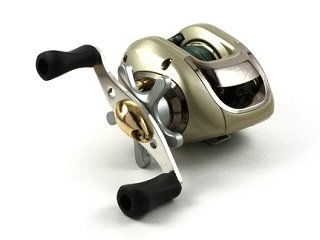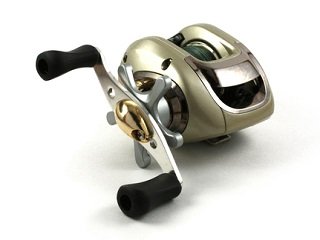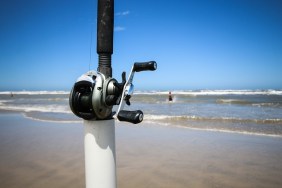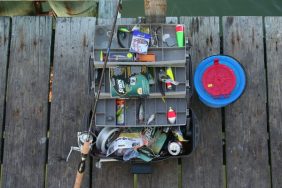 While many reels these days are comprised of high quality materials and absolutely sound construction, they can surely fail if they’re not treated properly. Your fishing reels are an important part of your fishing ability and regular maintenance is a sure way to make sure that you don’t go without. Here are a few common mistakes that will ensure your reel doesn’t last too long. I urge you to take measures to avoid them at all costs, unless you like spending money on a new reel each season.
While many reels these days are comprised of high quality materials and absolutely sound construction, they can surely fail if they’re not treated properly. Your fishing reels are an important part of your fishing ability and regular maintenance is a sure way to make sure that you don’t go without. Here are a few common mistakes that will ensure your reel doesn’t last too long. I urge you to take measures to avoid them at all costs, unless you like spending money on a new reel each season.
Lack of or improper cleaning may be the biggest culprit when it comes to worn and damaged reels. Like cars, reels need to be taken apart now and then and have their inner workings cleaned and greased. Lube and grease can wear down or collect dirt over time, which hinders your reel’s performance, regular cleaning—especially in saltwater regions—is vital.
I remember fishing with a buddy once when his reel started to make a weird noise. I asked him about it and he simply dunked the reel in the lake and wiped it down in an attempt to solve the problem. The noise did stop…for a little while, but then it came back. Submerging your reel is perhaps the worst thing that you can do to it, because the fiber drag washers soak up water and the vital lubricant and oil are washed away. Eventually, the reel will lock up from lack of lubrication and corrosion and it will be too late to fix it. The moral of the story is to never dunk your reel in water. Ever.
I’ve seen a lot of anglers purchase oversized handles to replace the standard ones on their reels in an effort to increase the gear ratio and make it retrieve faster. While this does work, it also changes the stress management factor of the reel’s gears. Most reels will be able to support this added stress, but eventually the gear system is going to fail. If you really want to get a faster gear ratio, look into changing the drive gear and pinion gear or look at a different reel altogether. Changing the handle is just not worth the risk.
Many of today’s reels offer brake systems that allow you to turn on or off a set of 6 brakes that rotate on the end of the spool. When adjusting a system such as this, though, it’s important to try to keep the brake engagement symmetrical in order to ensure that the spool maintains the best balance possible. Believe it or not when you make a long cast with a heavy lure, your reel’s spool rotates very quickly and the slightest bit of dirt on the end of it can cause vibration and reduce the reels performance, so keeping the brakes as symmetrical as possible is very important to the casting and overall performance of your reel.
The items listed above are just a sample of some of the common errors anglers make when maintaining their reels. You may not notice the effects of neglect right away, but eventually you will, and more often than not, it will be too late when you do. Take measures to avoid making these mistakes and you’ll see a prolonged life in your reels.








